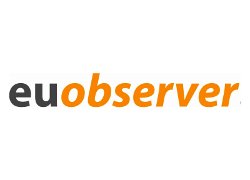EUobserver: Lukashenka is trying to outsmart the West again
11- By Olga Zakharova and Yuri Dzhibladze, EUobserver
- 27.06.2012, 16:00

The EU has enough economic leverage to influence Lukashenka and it has already proven its effectiveness.
Europe’s last dictator, Alexander Lukashenka of Belarus, may have freed political prisoners Andrei Sannikov and Dmitry Bondarenko over Orthodox Easter but his actions are entirely disingenuous.
This “act of mercy” followed 16 months of torture and psychological harassment. Sannikov is a former presidential candidate and unless there is a change in the country, his conviction record will only clear in eight years.
This is a small victory. But charges remain against Sannikov and Bondarenka as well as several dozen other political prisoners released earlier. They are also deprived of civil and political rights.
Fourteen more political prisoners are still behind bars and are subject to degrading treatment, while the human rights situation in the country worsens.
Since December, at first through envoys of the regime and then coming from none other than Lukashenka himself, one could hear repeated demands to the West for “unconditional dialogue with no pressure”.
Lukashenka’s need for such negotiations seems to be so pressing that the push for dialogue with the West is not limited to official statements. It now also involves constant government pressure on a number of civil society organisations that could assist the dictator in convincing the EU to engage with the regime.
“Dialogue” is needed to prevent expansion of economic sanctions by the EU and allow Belarus to profit from its EU trade without having to change its repressive policies at home.
Experts warned that after elections in Russia, Lukashenka would turn away from Moscow and onto Europe. He would be unable to deliver past promises to Vladimir Putin of further integration into Russia. Russian integration had been an argument Lukashenka used to get discounted Russian oil and natural gas.
Today, Putin is in no mood to sponsor Lukashenka’s regime in exchange for empty promises. He demands Belarus sell key assets to Russian companies. But Lukashenka knows too well that selling off key assets would undermine his own regime.
Lukashenka received everything he could from Russia for this year. Above all, cheap oil. Now his main objective is to keep reselling oil-based products to the West for as long as possible.
Europe is Belarus’ only viable market for such goods, and oil and oil products make 60 percent of its exports to the EU. Exports from Belarus to EU countries increased 2.6 times, compared to last year, while the surplus of trade with the EU is up 8.5 times.
It is also crunch time for the regime since its multi-billion foreign loans are maturing. It also needs money to increase salaries and pensions on the eve of the so-called parliamentary elections in September.
EU sanctions on Belarusian oil and oil product exports into Europe would wreak havoc with the regime. Lukashenka’s main task now is to prevent the expansion of EU sanctions while earning a few extra billion off its EU-destined exports.
Paradoxically, Europe's purchase of Belarusian oil products reinforces its dependence on Russia. By releasing the two prisoners in April, Lukashenka was able to gain some time. Expansion of sanctions against Belarus has not been discussed at recent EU Council meetings.
Lukashenka then made another move when he promised amnesty on 3 July that may (but also may not) include releasing some of the remaining political prisoners. It means that the EU will likely refrain from passing any new measures against Belarus before then, fearing that they would jeopardize the release of another batch of political prisoners.
In addition to continuing its successful trade relations with Europe, the Belarus government has a few other tricks up its sleeve. A Belarus delegation visited Washington DC in April for the spring meeting of the IMF and the World Bank where they discussed prospects of a new credit line in exchange for economic reforms.
Another headache for the regime is the June session of the UN Human Rights Council. It is to hear a report by the UN High Commissioner for Human Rights on the situation in Belarus based on a year-long monitoring.
Many countries and NGOs express concern over the mounting human rights crisis in the country and advocate adoption of a tough resolution as well as appointing a UN special rapporteur on Belarus.
Belarus ignores its human rights obligations and numerous resolutions by the UN and other international organisations. However, it is working hard for recognition of “certain progress in human rights” in Geneva based on the release of Sannikov and Bondarenko.
If such an assessment prevails in the UN instead of a tough resolution and further scrutiny by a special rapporteur, it will pave the way for new loans and reopening “dialogue” with the West. Without the rapporteur, Belarus will deteriorate further with a tacit support from the international community.
The EU should not succumb to the thrill of a quick victory which may turn out to be a defeat if it is not followed by a roadmap for change. Demands for systemic change based on clear measurable benchmarks must be at the heart of all discussions with Belarus.
The EU has enough economic leverage to influence Lukashenka and it has already proven its effectiveness.
The question remains whether EU leaders have enough political will to break out of the vicious circle and prevent the dictator’s scenario of remaining in power from being implemented.
The writers are coordinators of the Working Group on Investments of the Committee for International Control of the Human Rights Situation in Belarus.
Olga Zakharova and Yuri Dzhibladze, EUobserver









